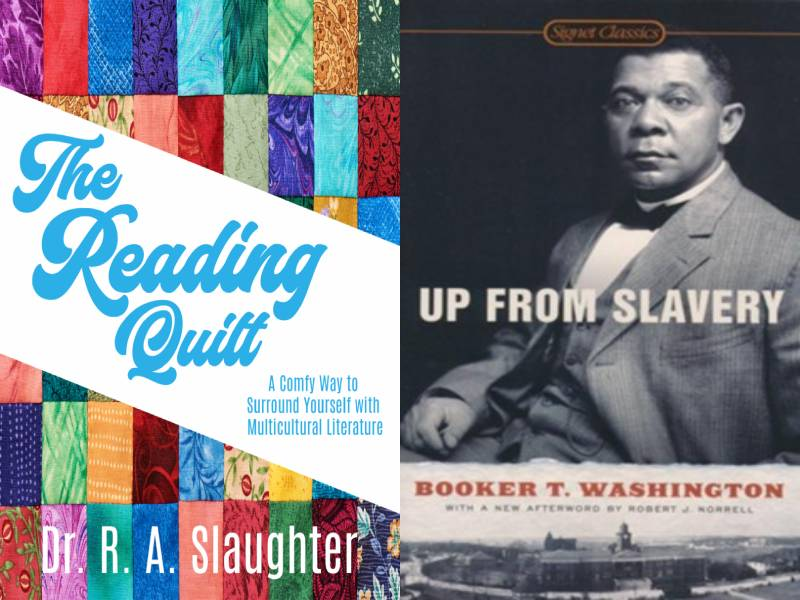There is no sweeter taste than that of freedom, and when your freedom is merely a wish or memory, you die a little inside for every moment you are not free. The institution of slavery, which lasted over four centuries, is the cruelty that enslaved nearly 60 million African people. It is within this legal and widely celebrated institution, or state of cruelty, where more than four million men, women, and children died in horrific ways.
Despite the inclusion of slavery’s history in the American curriculum, few people can hardly visualize the days and nights of the enslaved victims who endured what Dr. John Henrik Clarke describes succinctly as the time when Africans were “torn from their homeland, herded onto ships, and dispersed all over the so-called New World.” Torn, herded, and dispersed: it is in the unpacking of these verbs where the true crime against humanity is detailed. After many years, one day slavery officially ended.
June 19, or Juneteenth, is the day that mark the year in 1865 when the slaves received the message that their freedom was granted. Although this time was marked with great joy since it marked the freedom of the remaining slaves, historians tell us that slavery did not end at that moment. However, for all intents and purposes, African Americans welcome Juneteenth, a time of celebration, a reminder of freedom.

Each month “The Reading Quilt” provides a short review of a book that a parent may use to spark conversations about culture and race, along with a learning activity that may help students understand human behavior. Using the acronym QUILT, Slaughter offers readers information about the Quality of writing, Universal theme, and Imaginative plot, as well as a mini Lesson plan, and Talking points that stem from the book’s premise. This month, a book that details a legacy of fortitude and strength against the cruelty of slavery, is the focus of QUILT.

Photo: Library of Congress, Washington, D.C.
Booker T. Washington
Booker T. Washington was born April 5, 1856 in Hale’s Ford, Franklin County, Virginia where the name of Taliaferro, Booker’s middle name, was associated with prominent people who settled in Virginia in the 17th century. Booker’s birth to Jane, a slave cook, and a white man that is not identified by surname in Booker’s historical materials, signifies Booker’s compromised and violent beginning. Specifically, Booker was born a slave and grew up on the James Burroughs tobacco plantation, where Booker’s mother was the cook. Originally named Booker Taliaferro, Jane decided later to erase that name from Booker’s future.
When Booker was just a baby, Jane, a new mother, met and fell in love with Washington Ferguson, a slave. Jane and Washington married and conceived Amanda and parented other children. Later, Booker, upon starting his formal academic journey, gave himself the name Washington out of respect to Washington Ferguson. Nine years later, the small family left Burrough’s farm to start a life with Washington Ferguson who needed to leave for work on a salt farm in Malden, Virginia, when Booker was a small boy. Booker joined his stepfather packing salt at just nine years old. At the tender age of ten, Booker, a hard worker, began working in a coal mine while going to school. Not long after, Booker took a job with General Lewis Ruffner, owner of the mines, as Mrs. Ruffner’s houseboy.
Up from Slavery by Booker T. Washington

Quality – In his book Up From Slavery (Bantam, 1901), Booker details significant life experiences as a slave. Originally published in a magazine titled “Outlook,” Booker, encouraged by readers and other fans, gathered the vignettes together to publish an autobiography of forty years of his life. In the book’s preface, Booker shows a humility about his life’s work and literary success giving accolades to his Tuskegee colleague Max Bennett Thrasher. Thrasher, four years his junior, was also an accomplished writer.
Universal theme– The theme of industriousness is a prominent and inspirational one in this novel of profound personal fortitude. With chapter headings like “A Slave Among Slaves,” “The Struggle for Education,” and “Early Days at Tuskegee,” the narrative speaks to people who understand education as a personal freedom and escape from mental slavery. Quoted as saying, “Success is to be measured not so much by the position that one has reached in life as by the obstacles which he has overcome,” Booker hoped his autobiography would inspire other people to courageously embrace the productive struggle.
Imaginative story– The book opens with the chapter “A Slave Among Slaves,” which is a descriptive account of Booker’s life as a slave. In his book, Booker writes, he learned of his African ancestors and the atrocities the African people endured “on the middle passage of the slave ship while being conveyed from Africa to America” through secrets and whispers.
Lesson plan: Slavery in the United States was a reality from the 17th through the 19 century. The “legal institution of human chattel enslavement” helped the United States move into economic stability through the use of free labor. Enslaved people, at the hand of violent masters, maintained plantations and tended crops like tobacco and cotton while tending to the plantation owners’ personal lives as butlers, maids, houseboys, chambermaids, and cooks. A lesson may center around the individual life of an enslaved person who offered, like Washingson, their story of dauntlessness, grit, spirituality, and perseverance despite unconscionable circumstances.
Talking points: The novel Up From Slavery provides a personal look into the evil business of human chattel. Historians tell us that the American curriculum has compromised the timeline and personal stories of slavery and the slaves. If this is true, do Americans know the real history of slavery?
1. What is your understanding of the institution of slavery?
2. Is it important to remember the stories of individual slaves like Booker T. Washington? If so,
which slave stories do you know well?
3. What part of Washington’s story resonates with you? What lessons did the autobiography teach you?

Dr. R. A. Slaughter’s (Doc) textbooks Turning the Page: The Ultimate Guide for Teachers to Multicultural Literature, and Turning the Page: A Guide to Securing Multicultural Literature for Schools, both published by Rowman & Littlefield and available in all bookstores, have brought Doc global recognition. For more information, log onto drrachelslaughter.info, or email LiteracyUniversity@gmail.com





